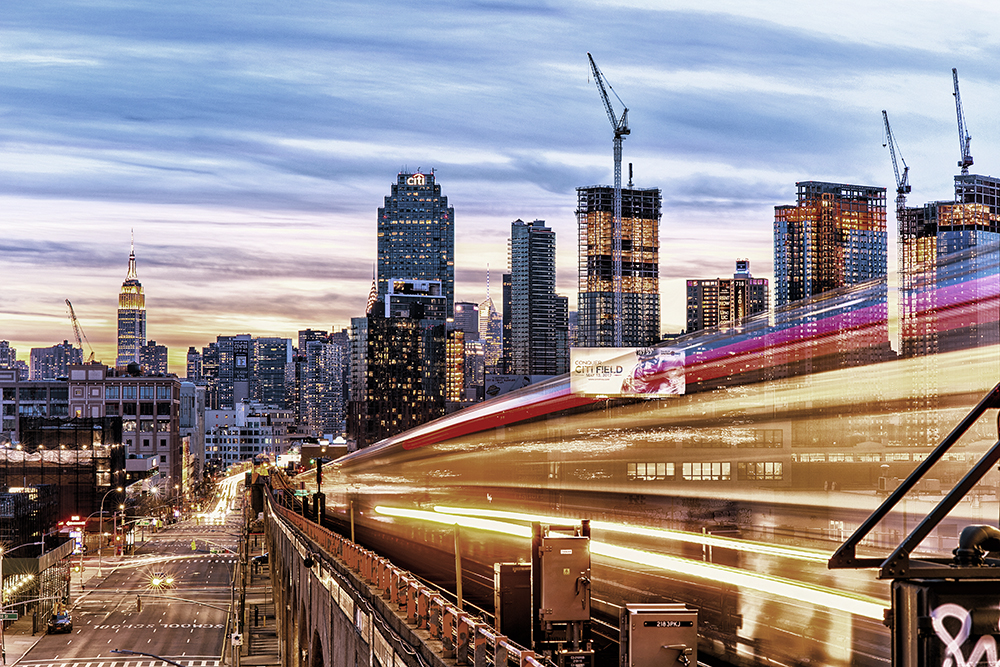Comptroller Lander Highlights Results from New CUNY Survey Detailing New Yorkers’ Feedback on City Services and Life in NYC

(New York, NY) – A survey released Friday by the Center for Urban Research at the City University’s Graduate Center found that New Yorkers ranked the high cost of living and lack of affordable housing at the top of their list of concerns as the new term begins. Speaking on WNYC’s The Brian Lehrer Show Friday morning, NYC Comptroller Brad Lander welcomed the survey and pledged that the concerns and priorities articulated by New Yorkers will inform his approach to the work of the office as he begins his tenure. Lander committed to taking a collaborative approach to his role as Chief Accountability Officer, by creating opportunities like this survey for New Yorkers to take part in the process of evaluating the policies and services of City government. Listen here to hear Comptroller Lander discuss the survey and his first week in office on WNYC.“Accountability is a shared project, and it starts by listening to New Yorkers about their experiences and opinions about city services and life in the Big Apple,” said Comptroller Brad Lander. “Two years into a pandemic that has had a profound, and unequal, impact on the health and safety and finances of so many, New Yorkers are clear that addressing housing affordability, increasing mental health services, ensuring our streets and subways are safe places to walk, ride and bike will be essential to our recovery and a thriving future. I look forward to working with Mayor Adams and the City Council to address these and other issues, taking direction from New Yorkers themselves about how city government can be a vehicle for our shared prosperity.”The Public Service Satisfaction Survey was modeled on earlier iterations of resident feedback surveys conducted by Mayor Bloomberg in 2008 and the Citizen’s Budget Commission in 2017. This iteration was conducted by the Center for Urban Research at the City University of New York, led by Dr. John Mollenkopf. “New Yorkers are in a state of considerable anxiety about the future of the city. Above all, they want to be able to afford to live in an orderly and safe city,” said Dr. John Mollenkopf, Distinguished Professor of Political Science and Sociology and Director of the Center for Urban Research, who led the survey design and analysis.Key findings included:
- Overall, New Yorkers feel positively about their neighborhoods, but are concerned about the direction of the city.
- The city’s high cost of living and the high cost of housing relative to income topped New Yorkers’ list of concerns, with crime and public safety and problems with public transit following close behind. Black and Latino New Yorkers were especially likely to identify affordable housing as their top concern.
- When asked what they felt would make them feel safer, the most frequent answers across racial groups were, in order: more affordable housing, more mental health services, less homeless people on the street, less access to handguns, and more jobs for youth. More police trailed these suggestions.
- New Yorkers are concerned about homelessness and people struggling with mental illness on the streets as a safety issue, but they want to see people given mental health treatment and housed, rather than incarcerated.
- Conditions in public housing ranked lowest in a review of City services, while voting, using 9-1-1, public health services and CUNY ranked highest.
- Black and Latino New Yorkers consistently gave lower rankings to the City services, quality of life in their neighborhood, and the city as a whole.
In welcoming the survey, Lander further pledged to take a participatory approach to the role of holding City government accountable to the shared priorities of New Yorkers.“During my tenure, I plan to consistently ask New Yorkers what they think about city services, through surveys, focus groups, town halls and other public engagement processes. All New Yorkers have a stake in our city’s future, and a role to play in making sure local government delivers the public services, opportunities, and infrastructure that we all need to thrive in the years to come,” said Lander.
###